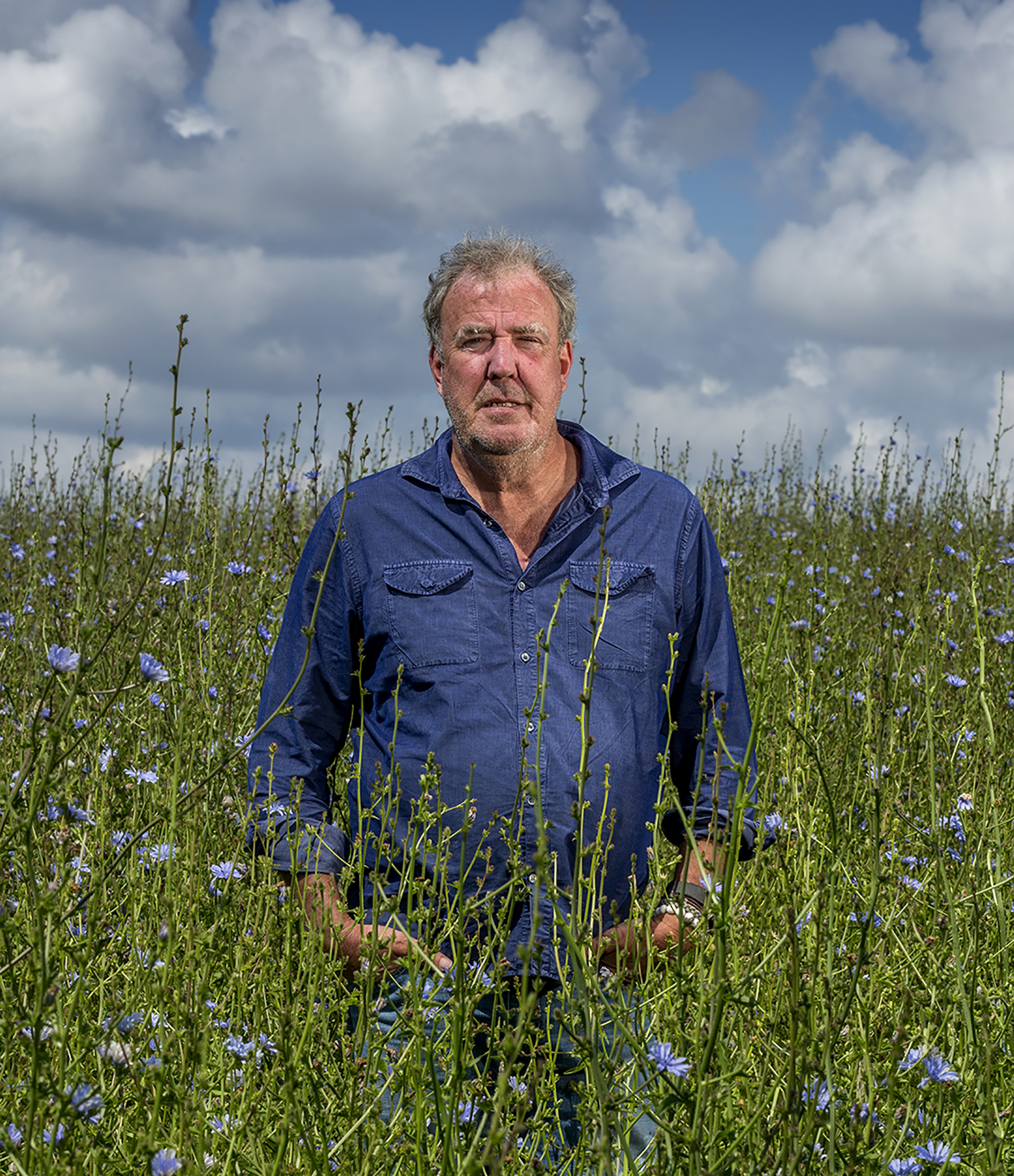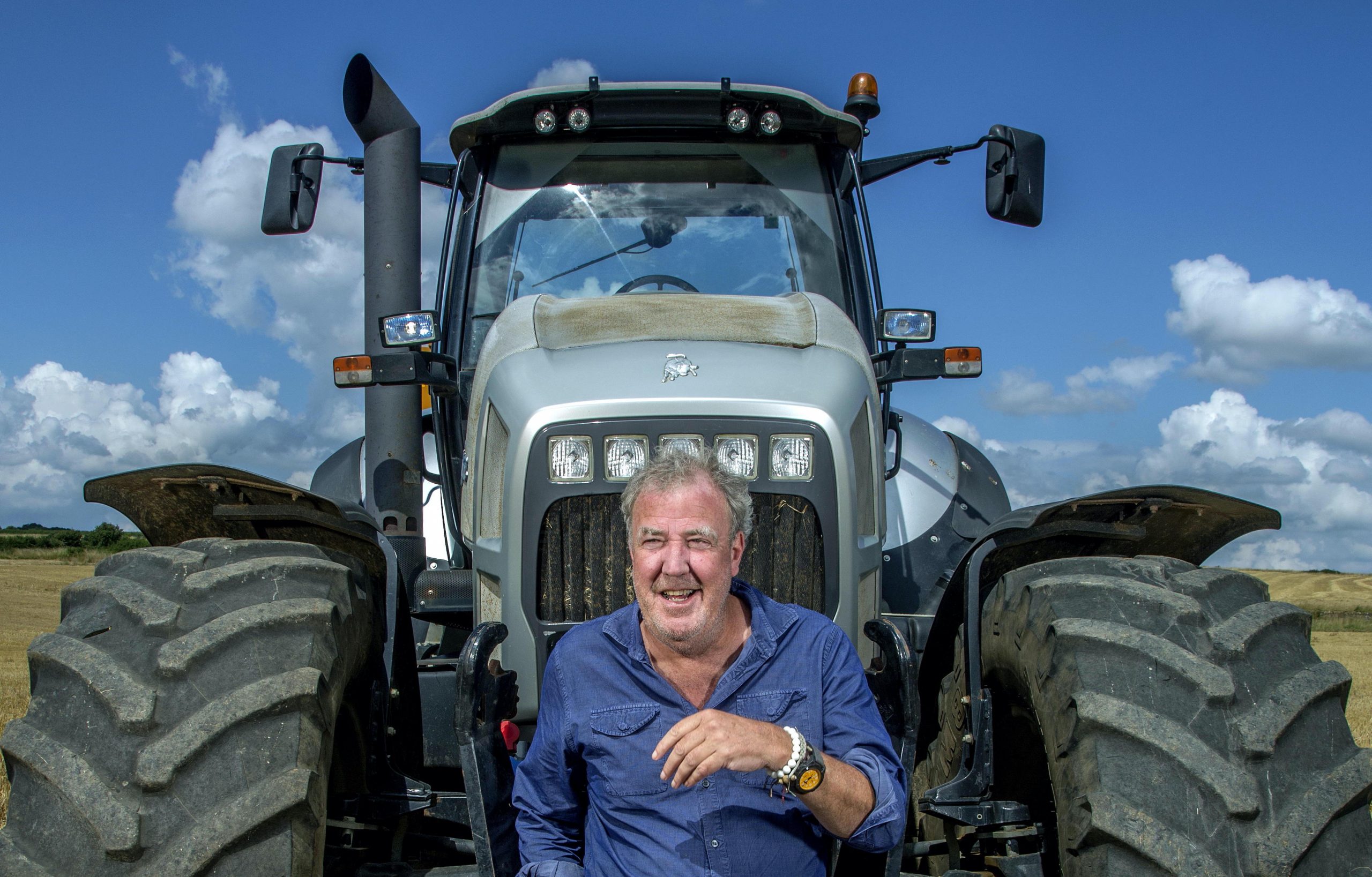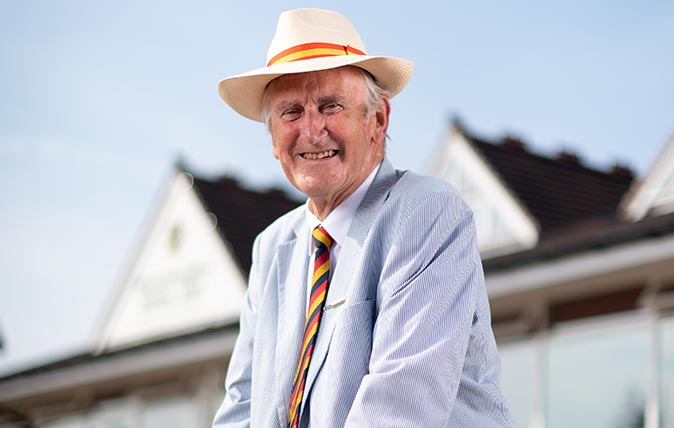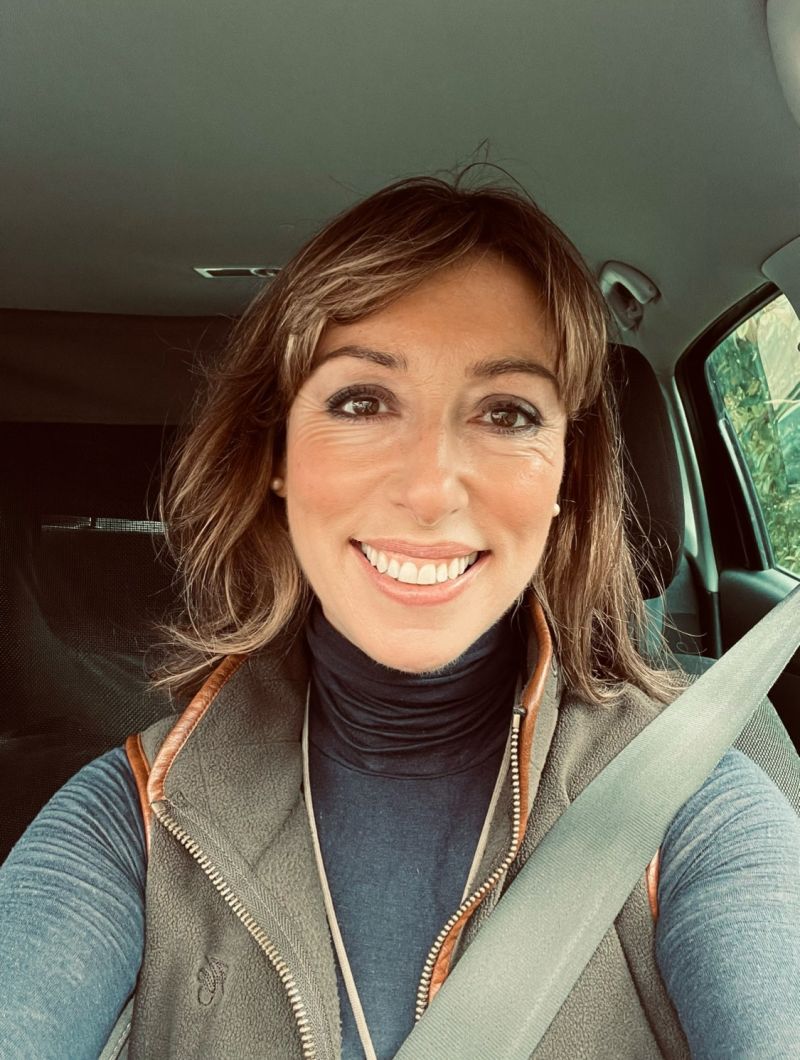Jeremy Clarkson: 'The countryside should be given to rockstars... they want it to look nice and they are prepared to invest in it'
The presenter talks to Paula Lester about the realities of farming and why rock stars should run the countryside.


'I'm flabbergasted,’ declares Jeremy Clarkson, the notoriously outspoken motoring journalist and presenter, when asked if he ever thought he would end up making one of the most popular and talked-about television series of this year — about farming. ‘I honestly thought it would serve up gentle disappointment to fans of Top Gear and The Grand Tour, who have watched me for years, but it’s gone berserk.’
He is talking, of course, about Clarkson’s Farm, Amazon Prime’s eight-part programme documenting Mr Clarkson’s hapless attempts to farm the 1,000 acres he’s owned in the Cotswolds village of Chadlington, Oxfordshire, since 2008.
Despite being dismissed by The Guardian as ‘eight hours of a buffoon screwing things up for our supposed entertainment’, the series — which details Mr Clarkson’s travails, from buying a tractor (opting for a 10-ton Lamborghini, which everyone mocks for being too large) to being forced to hire a local contractor, Kaleb Cooper, who’s soon chastising his employer for making a right mess of drilling a field by going freestyle with the tramlines — quickly became one of the streaming giant’s biggest hits.
Watching Mr Clarkson chase his herd of 76 ‘sheeps’ on their frequent bids for freedom or trying to have a conversation with Gerald Cooper, a dry-stone waller with an impenetrable local accent, it’s easy to see the programme’s comedic appeal. However, by poking fun at his own lack of knowledge and skill, Mr Clarkson — an often controversially forthright character, sacked from Top Gear by the BBC after a fracas with a producer — has brought the harsh realities of farming to a much-needed wider audience.
‘I wanted to write a love letter to the countryside,’ he explains. ‘Although I hadn’t been involved in farming, I was dimly aware it didn’t make any money [at the end of the first series, Mr Clarkson’s land agent, ‘cheerful Charlie’ Ireland, reveals the year’s profit to be a paltry £144] and that’s why it’s called “Diddly Squat Farm”.’
'It saddens me, because I’m 61 and this living’s really enjoyable and I’ve left it too bloody late'
He might be known for show-stopping television stunts (such as when his longtime co-stars James May and Richard Hammond blew up the old farmhouse here to make way for the mock-Georgian, six-bedroom home being built, into which he and his girlfriend, Irish actress Lisa Hogan, hope to move at Christmas), but Mr Clarkson was keen to reflect ‘what farmers really do’. ‘That’s why I bought so many sheep. If I’d got 20, it would have been seen as a smallholding, not sheep-farming.’
The biggest surprise for the host of ITV’s Who Wants to Be a Millionaire, however, at becoming a farmer at this stage in his career, which began as a local newspaper reporter, is that: ‘I love it. I didn’t think I would, but I do. I like cultivating, I can do that. But now I have been told that we’re not cultivating any more, we’re direct drilling, so I’m going to have to find a new skill. Kaleb won’t let me anywhere near the drill — we’ve got a new one and I am banned from that.’
Exquisite houses, the beauty of Nature, and how to get the most from your life, straight to your inbox.
Admitting that the sheep are ‘an almighty pain in the arse’, Mr Clarkson reveals that, although he still owns the flock, he’s asked a neighbouring farmer to manage them.
Nonetheless, the second series will feature the largely arable farm’s expansion into pigs and cattle. ‘I’ve just bought 26 Shorthorns, so we can have a more sensible crop rotation and cut down on the amount of nitrogen fertiliser we’re shoving onto fields, because no farmer knows what is happening at the moment,’ he opines.
‘The Government has been utterly useless in saying what is going on with grants [EU subsidies, which are gradually being reduced, will be phased out in 2028] and we have no idea what will happen post the Brexit transition period.’

For now, the intention for the farm — which comprises 650 acres of oilseed rape, barley and wheat, including durum wheat for pasta, 250 acres of wildflower meadows (home to green-winged orchids, knapweed, marjoram, plus five rare species that made plant-charity representatives ‘squeak’) and about 50 acres of woodland — is to grow and sell as much of his own and his neighbours’ produce via the Diddly Squat farm shop run by Lisa.
‘That’s easily the most satisfying thing and I’m going to do more of it,’ he promises. ‘As well as fighting the stupid Government rules by trying to be our own little self-sufficient farming state.’ Current bugbears are endless form-filling and the need to keep glyphosate, but he’s cheerful about making beer from his own barley, felling his own timber to build a cattle shed, keeping more bees to make honey and growing chillies in polytunnels.
It does seem that Mr Clarkson is settled in his country life — he’s only stayed at his Kensington flat twice this year — but he wishes he’d done it sooner. ‘I never thought I’d end up as a farmer, but it saddens me, because I’m 61 and this living’s really enjoyable and I’ve left it too bloody late,’ he laments.
‘To me, the countryside is the breadbasket — it’s taken thousands of men thousands of years to make it look like this and it’s such a shame that we’re facing what will be its biggest change in millennia, which is why, as I’ve said in the past [in his Sunday Times column] it should all be given to rock stars,’ he contends with a mischievous glint in his eye.
‘I’m not joking — people such as Steve Winwood, he really knows what he’s doing with the countryside, as do Roger Daltrey and Alex James. They’re not that bothered about making money from the land because they’ve made fortunes — they want it to look nice and they are prepared to invest in it.’
Clarkson’s Farm is available on Amazon Prime Video, with a second series due next summer. Jeremy Clarkson’s book Diddly Squat: A Year on the Farm is published in November (Michael Joseph, £20). To purchase farm products online, visit www.diddlysquatfarmshop.com.
On the record: Jeremy Clarkson
- Favourite place in Britain? London — it’s the best city in the world
- Building? The Natural History Museum, although I don’t usually like Victoriana
- Book? The House at Pooh Corner (A. A. Milne)
- Film? Butch Cassidy and the Sundance Kid or Local Hero
- Food? Oysters and caviar
- Dinner guest? [The late writer] A. A. Gill — you’re never going to get anyone better than him

Ted Dexter: The Italian-born icon who brought dash and glamour to English cricket
Ted Dexter, the former England cricket captain and chairman of selectors, is still bursting with wit, wisdom and insight about
An experienced journalist, Paula Minchin, Country Life's Managing & Features Editor, has worked for the magazine for 10 years — during which time she’s overseen two special issues guest-edited by His Majesty The King in 2013 and in 2018, and the bestselling 2022 edition masterminded by his wife, Queen Camilla. A gamekeeper’s daughter, Paula began her career as a crime reporter on The Sidmouth Herald in Devon, before becoming Pony Club & Young Rider Editor, then Racing Editor, at Horse & Hound. Paula lives in Somerset with her two working Labradors, Nimrod and Rocky.
